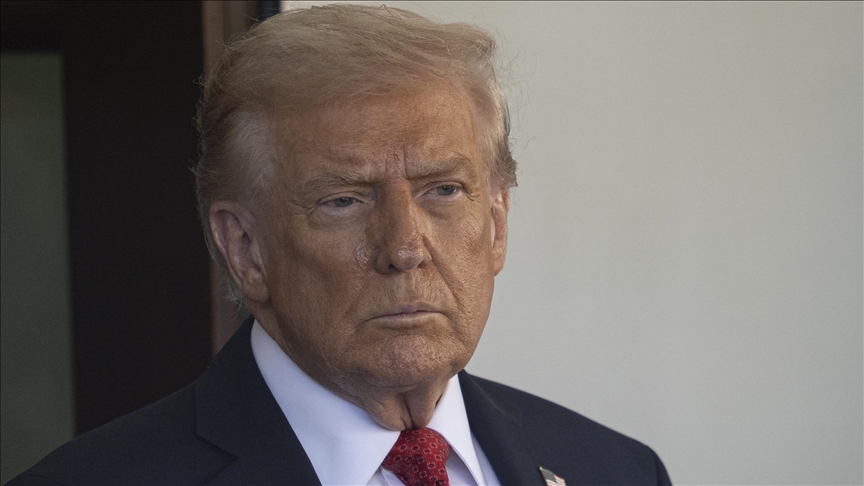Trump says he will ‘be making a decision’ on releasing Palestinian leader Marwan Barghouti
US president says Mahmoud Abbas will 'probably not' govern in future Palestinian leadership

ISTANBUL
US President Donald Trump said he would decide whether to push for the release of imprisoned Palestinian leader Marwan Barghouti, a figure many see as capable of uniting Palestinians behind a two-state solution.
"I am literally being confronted with that question about 15 minutes before you called ... That was my question of the day," Trump told Time magazine in an interview published Thursday. "So, I'll be making a decision.”
The comments came as Trump discussed Palestinian leadership, saying Palestinians "don't have a leader right now, at least a visible leader."
When asked about Palestinian Authority President Mahmoud Abbas's potential role in post-war Gaza governance, Trump said, "I've always gotten along with him. I've always found him reasonable, but he's probably not."
Barghouti is a prominent Fatah leader often called the "Palestinian Mandela" for his influence and leadership qualities.
He was arrested by Israel in 2002 and sentenced to five life terms plus 40 years for allegedly directing deadly attacks against Israelis.
Barghouti tops most polls among Palestinians for whom they would vote for in a presidential election, making him a potentially unifying figure for a two-state solution.
A prisoner exchange with Palestinians under a Gaza ceasefire deal will not include detained Fatah leader Marwan Barghouti, an Israeli government spokesperson said earlier.
Israel would lose US support if it annexes West Bank: Trump
Asked about efforts within Israel's government to annex the occupied West Bank, Trump firmly ruled out the possibility, saying such a move would cost Tel Aviv "all of its support from the United States."
"It won't happen because I gave my word to the Arab countries," Trump said. "We've had great Arab support."
"Israel would lose all of its support from the United States if that happened," he added.
On Wednesday, the Knesset approved in a preliminary reading of two bills to annex the West Bank and the Ma’ale Adumim settlement bloc. Both drafts must still pass three additional readings to become law.
Iran's regional role
Trump suggested that achieving his 20-point Gaza ceasefire plan and peace in the Middle East would require weakening Iran's regional influence, blaming the US' 2003 invasion of Iraq for destabilizing the balance.
"When we blew up one of the two powers (Iraq), all of a sudden you had one bully, and the bully was Iran," Trump said.
He argued that a powerful Iran "would have made it impossible to make a deal like this, because you would have had this looming threat over the region."
Trump said he stopped Israeli Prime Minister Benjamin Netanyahu from continuing attacks on Gaza, which "could have gone on for years."
"When he made that one tactical mistake, the one on Qatar, and that was terrible ... He had to stop because the world was going to stop him. Israel was becoming very unpopular," Trump said.
Trump confirmed he plans to visit Gaza, saying "we have the Board of Peace, and it's set up."
Israel's Sept. 9 strike on Doha took place amid intense US-led negotiations to end the Gaza war and secure the release of Israeli hostages.
Qatar, alongside Egypt and Türkiye, has served as a central mediator in indirect talks between Israel and Hamas. The incident prompted a rare direct apology from Netanyahu to Qatari officials, after which negotiations resumed and ultimately produced the Trump administration’s 20-point plan for peace in the region.
Anadolu Agency website contains only a portion of the news stories offered to subscribers in the AA News Broadcasting System (HAS), and in summarized form. Please contact us for subscription options.







